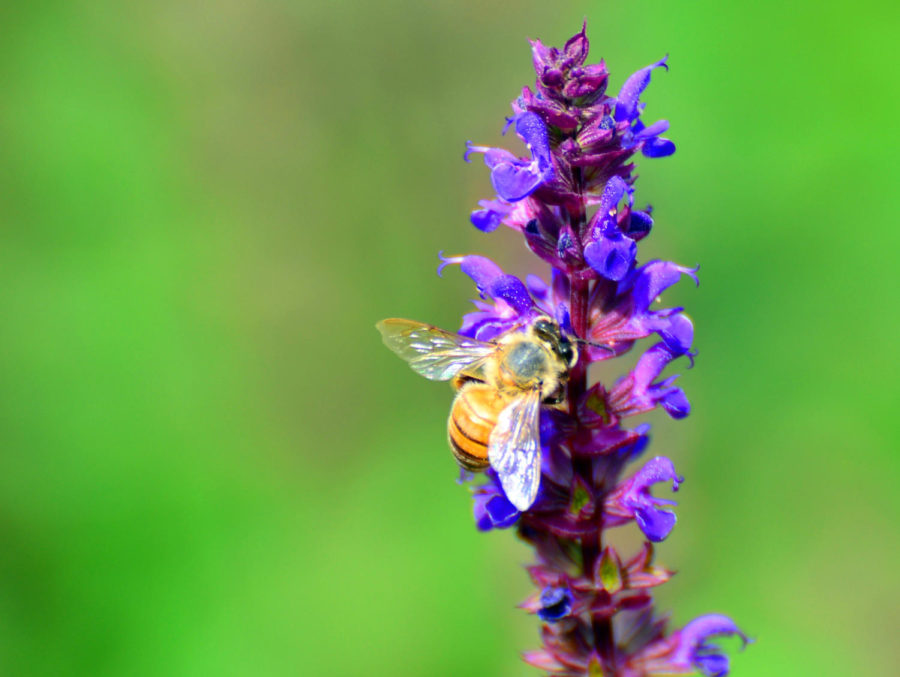Timberlake: The buzz about the bees no more
The bees are actualy experiencing a “beepocalypse,” in which a severe colonial collapse of the global honeybee population. This phenomena has hurt much to United States economy because 80 percent of the flowered crops are pollinated by the bees.
June 26, 2013
Beware the next time you swat-stomp a bee, not for the sting, but for the starvation.
Time magazine is calling it the “beepocalypse,” in which a severe colonial collapse of the global honeybee population is threatening all life on Earth. For the sake of fear-mongering, if this bee collapse continues without explanation, global economic collapse and starvation of the poor could become a frighteningly real scenario.
Why are the bees so important? Bees are responsible for much of the pollination process plants need in order to survive. Bees transport pollen (sperm cells) to and from plants, invariably becoming the vessel for plant reproduction.
According to the United States Department of Agriculture (USDA), honeybees annually pollinate about 15 billion dollars worth of crops in the United States alone. The bees pollinate about 80 percent of our flowered crops: Nuts, fruits, and vegetables which account for nearly 40 percent of what we eat.
In addition to flowered crops, honeybees pollinate crops that we use to feed livestock, which we in turn use for meat and dairy products. Outside of the plants and animals we harvest, honeybees pollinate a very large portion of the ecosystem. The ecosystem is in a balance important to the plants and animals we harvest; if it falters, so does everything else.
Thankfully, corn does not require active pollination as it, like most grasses, can rely on the wind to spread seed. So economically speaking, Iowa might be slightly better off in a dire situation than, say, Texas.
The top four commodities of Texas account for 75 percent of the entire state’s agriculture: Cattle, cotton, broilers (baby chicks grown for meat) and greenhouses. Texas is easily the nation’s leading producer of cattle and cotton, and among the leaders for broilers and greenhouses.
Imagine if cotton became a rare commodity.
In an impending economic and ecosystem collapse, Iowa and Illinois cannot be required or expected to support all the cattle feed and broiler feed that would be needed to support Texas, let alone the rest of the nation. Iowa will surely do its best, but ultimately, people will be more concerned with themselves when the sky starts falling.
There has been some debate recently as to whether or not high fructose corn syrup might be contributing to the bee disappearance. The argument is that high fructose corn syrup, a food substitute for honeybees, has allowed for the lowering of the bee’s immune system due to lack of naturally occurring immune system bolstering compounds. While the substitute might not be directly unhealthy for the bees, it could facilitate the colonial depletion we are seeing around the world.
In addition to high fructose corn syrup, certain pesticides coming from Monsanto, Bayer and Syngenta have been attributed to honeybee deaths even when the pesticides are regulated by the Environmental Protection Agency (EPA) and not supposed to harm pollinators.
Neonicotinoids are a type of pesticide used by Monsanto, Bayer and Syngenta that have been under fire ever since it was recognized by the EPA as a pesticide in the mid-1980s. This pesticide is currently banned in Europe for its unreliable results in regards to how safe it is for pollinators. Even non-lethal doses have been known to impair the flight of honeybees.
You have probably heard about honeybees in the news for years, and maybe you have even become dull to it. This problem has been creeping up continuously for years. Scientists and environmental activists have been speaking up about it. But, no one has been listening and heeding to its importance. In many cases, companies who make seed, fertilizer and pesticides have blatantly ignored the warning signs and the EPA regulations.
For those of you who take an active role in our agriculture industry, please make a concerted effort to figure out and solve our pollination problem. The hunger and wealth of the world very well could be sitting on your shoulders and not too far across the apple orchard.







